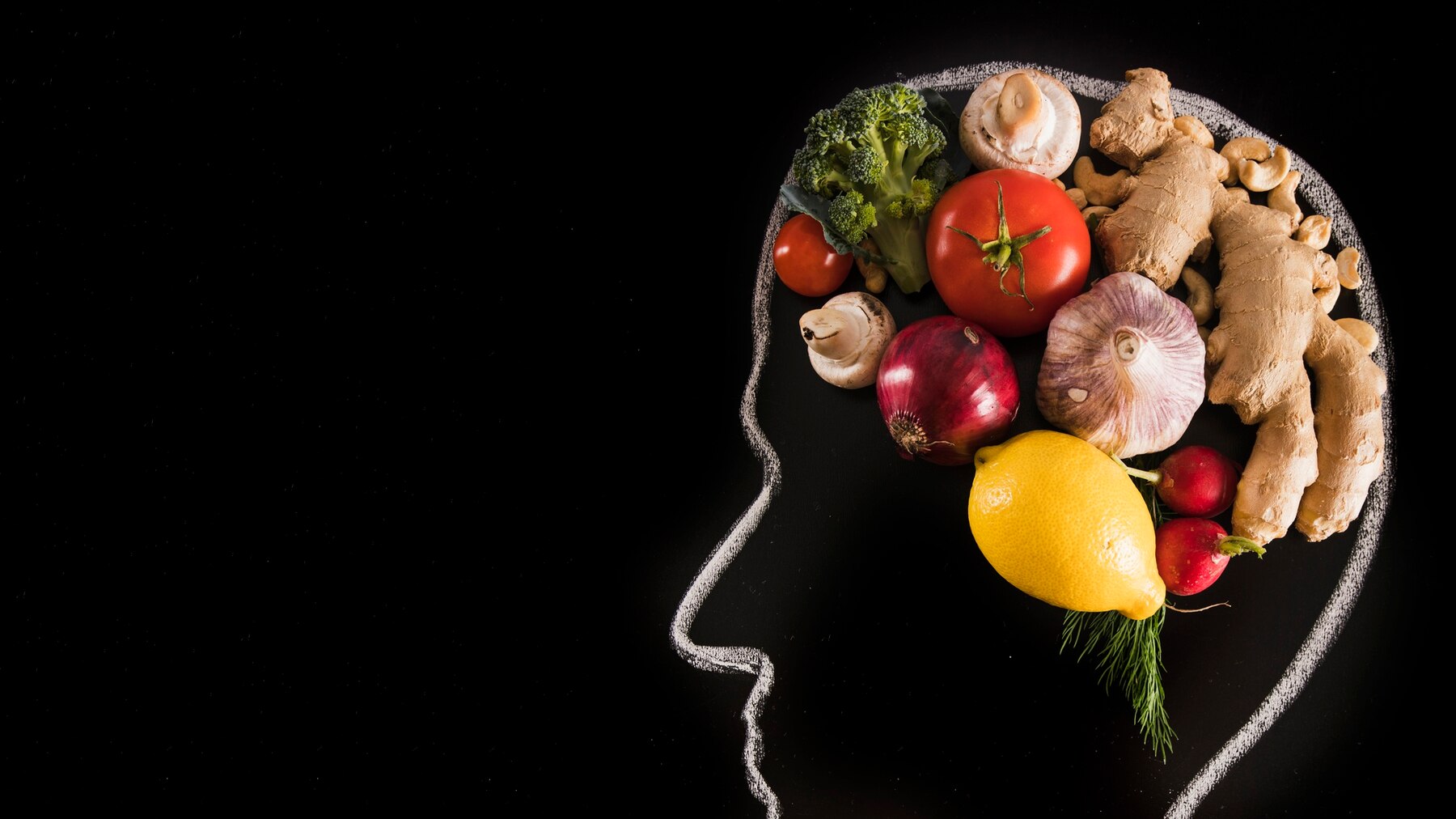The saying “you are what you eat” extends beyond physical health to encompass mental well-being. Emerging research increasingly supports the connection between diet and mental health, suggesting that what we consume can significantly influence our mood, cognitive function, and overall mental health. This comprehensive guide delves into the intricate relationship between diet and mental health, exploring the scientific basis, key nutrients, dietary patterns, and practical tips for optimizing mental well-being through nutrition.
The Science Behind Diet and Mental Health

The brain, like any other organ, requires specific nutrients to function optimally. The relationship between diet and mental health is multifaceted, involving several mechanisms:
- Neurotransmitter Synthesis: Neurotransmitters like serotonin, dopamine, and norepinephrine, which regulate mood and emotion, are synthesized from nutrients found in food.
- Inflammation: Chronic inflammation is linked to mental health disorders like depression and anxiety. Certain foods can either exacerbate or reduce inflammation.
- Gut-Brain Axis: The gut and brain are interconnected through the gut-brain axis. The gut microbiota, influenced by diet, plays a crucial role in this communication, affecting mood and cognitive function.
- Oxidative Stress: Antioxidants in food combat oxidative stress, which can damage brain cells and contribute to mental health disorders.
Key Nutrients for Mental Health

Several nutrients are essential for maintaining mental health, influencing everything from neurotransmitter production to inflammatory processes.
Omega-3 Fatty Acids
Omega-3 fatty acids, particularly EPA and DHA, are crucial for brain health. They play a role in reducing inflammation, promoting neuroplasticity, and improving neurotransmitter function. Studies have shown that omega-3 supplementation can reduce symptoms of depression and anxiety.
- Sources: Fatty fish (salmon, mackerel, sardines), flaxseeds, chia seeds, walnuts, and algae-based supplements.
B Vitamins
B vitamins, including B6, B12, and folate, are involved in neurotransmitter synthesis and function. Deficiencies in these vitamins are linked to an increased risk of depression and cognitive decline.
- Sources: Whole grains, legumes, leafy greens, eggs, poultry, and fortified cereals.
Vitamin D
Vitamin D, often referred to as the “sunshine vitamin,” plays a role in brain development and function. Low levels of vitamin D are associated with an increased risk of depression.
- Sources: Sunlight exposure, fatty fish, fortified dairy products, and supplements.
Antioxidants
Antioxidants protect the brain from oxidative stress and inflammation. Vitamins C and E, as well as polyphenols found in fruits and vegetables, are powerful antioxidants that support mental health.
- Sources: Berries, citrus fruits, nuts, seeds, spinach, and dark chocolate.
Magnesium
Magnesium is involved in numerous biochemical reactions in the brain and helps regulate neurotransmitter function. Low magnesium levels are linked to increased anxiety and depression.
- Sources: Nuts, seeds, leafy greens, whole grains, and legumes.
Zinc
Zinc is essential for brain function and has been shown to play a role in mood regulation. Zinc deficiency is associated with depression and anxiety.
- Sources: Meat, shellfish, legumes, seeds, and nuts.
Dietary Patterns and Mental Health
While individual nutrients are important, overall dietary patterns have a more significant impact on mental health.
Mediterranean Diet
The Mediterranean diet, rich in fruits, vegetables, whole grains, legumes, nuts, and olive oil, is associated with numerous health benefits, including improved mental health. Studies have shown that adherence to the Mediterranean diet can reduce the risk of depression and cognitive decline.
Western Diet
The Western diet, characterized by high intake of processed foods, sugary beverages, and unhealthy fats, is linked to an increased risk of mental health disorders. This diet promotes inflammation and oxidative stress, which can negatively affect brain health.
Plant-Based Diets
Plant-based diets, which emphasize whole, unprocessed plant foods, are associated with better mental health outcomes. These diets are rich in antioxidants, fiber, and healthy fats, which support brain function and reduce inflammation.
Anti-Inflammatory Diets
Diets that focus on reducing inflammation, such as the DASH diet and the MIND diet, have been shown to benefit mental health. These diets emphasize whole foods, healthy fats, and a variety of fruits and vegetables, while limiting processed foods and sugars.
The Gut-Brain Connection

The gut-brain axis is a bidirectional communication system between the gastrointestinal tract and the brain. The gut microbiota, the community of microorganisms living in the gut, plays a crucial role in this communication.
- Probiotics and Prebiotics: Probiotics are beneficial bacteria that support gut health, while prebiotics are fibers that feed these bacteria. Consuming foods rich in probiotics (yogurt, kefir, sauerkraut) and prebiotics (onions, garlic, bananas) can promote a healthy gut microbiota, which in turn supports mental health.
- Fermented Foods: Fermented foods contain live bacteria that can improve gut health and, consequently, mental health. Examples include kimchi, miso, and kombucha.
Practical Tips for Optimizing Diet for Mental Health

- Eat a Balanced Diet: Focus on a variety of whole foods, including plenty of fruits, vegetables, whole grains, lean proteins, and healthy fats.
- Include Omega-3 Fatty Acids: Incorporate fatty fish, flaxseeds, and walnuts into your diet to ensure adequate omega-3 intake.
- Stay Hydrated: Dehydration can affect mood and cognitive function, so drink plenty of water throughout the day.
- Limit Processed Foods and Sugars: Reduce intake of processed foods, sugary snacks, and beverages to lower inflammation and support mental health.
- Practice Mindful Eating: Pay attention to your eating habits, savor your food, and listen to your body’s hunger and fullness cues.
- Consider Supplements: If you have specific deficiencies or dietary restrictions, consider supplements for nutrients like omega-3s, vitamin D, and B vitamins, after consulting with a healthcare professional.
The connection between diet and mental health is profound, with a growing body of research highlighting the impact of nutrition on mood, cognitive function, and overall mental well-being. By adopting a balanced diet rich in essential nutrients, embracing healthy dietary patterns, and supporting gut health, individuals can enhance their mental health and quality of life. Prioritizing nutrition as a key component of mental health care offers a holistic and proactive approach to achieving optimal well-being. Always consult with healthcare professionals to tailor dietary changes to your individual needs and conditions.




